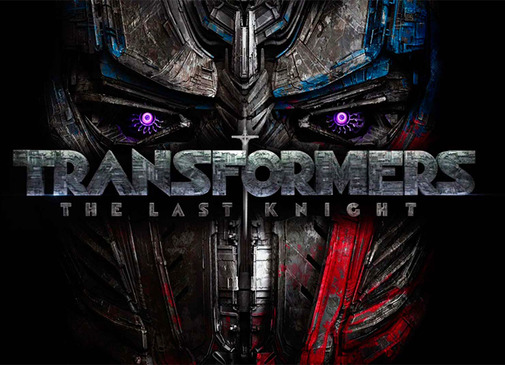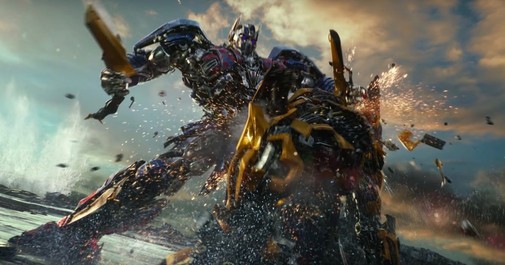By Spencer Coile
Since 2007, we have all come to expect the same qualities from Michael Bay's Transformers franchise: lengthy action sequences, stilted performances, and nonsensical storylines. With his latest entry into the world of Optimus Prime, Bumblebee, and co. with Transformers: The Last Knight, it seems as though Bay has thrown all logic out the window (alongside characterization). Heralding back to Medieval Ages and tracing the origin of the transformers to the days of Merlin, Bay dips his artistic vision in the realm of magic, surrounding his audiences with a silly and convoluted story of redemption and surrealism.
The movie is not particularly good...
I could go into further detail, providing you with a synposis that I still do not quite comprehend. Despite the film's shortcomings, though, there is something strangely appealing about The Last Knight. Could it be the stylistic flourishes that Bay incorporates? Might it be the very fact that none of the performers seem fully invested in the plot? Or might it be that I (as well as many others) are enjoying the Transformers series ironically?
Camp is a word used in large part by the gay community, often as a means of exploring a text "it's so bad it's good" qualities. A surface level glance at Michael Bay's Transformers: The Last Knight would immediately go against what defines camp in the first place. After all, it is produced for predominantly straight audiences. Still, Bay's films cater to more than just this majority: recall your buddies who see movies because they are allegedly so bad, they have to see it for themsevles. In that way, The Last Knight completely succeeds... mostly because it does so much wrong. During a summer with some particularly strong films, Michael Bay's story sticks out like a sore thumb. Yet it dominates in regard to its opening weekend box office numbers.
What is evident here is a clear division between style and substance. The Last Knight is, by the book, an action film. And although it lacks the depth and inventiveness that would set it apart from others in the genre, there is something obscure in the way it presents its characters or its plot. Running five films into the series, many are quick to call The Last Knight a parody of itself -- the ways in which people make fun of the franchise are now the ways in which the series markets itself. It's a fascinating relationship, and it looks to only keep growing as the universe expands into the sixth film and beyond, although without Michael Bay and Mark Wahlberg, it would appear.
Am I arguing that Transformers: The Last Knight will go down in history as a camp classic? Absolutely not. Surely it does not and will not have the gay fanbase many films need for it to be labeled as such. Still, there is an irony that many experience when settling into their theater seats to enjoy the latest bombastic episode from Michael Bay. The messages are not subtle. The characters are not three-dimensional. Even the visual effects have started to wear thin. But when the lights go down and the action begins, sometimes all we can do is laugh. After all, the film may be so bad... it might actually be good.

